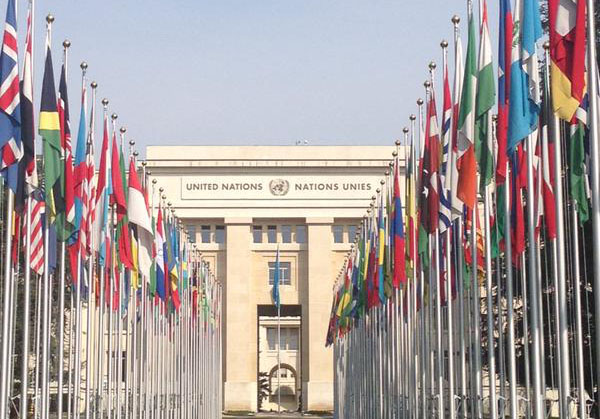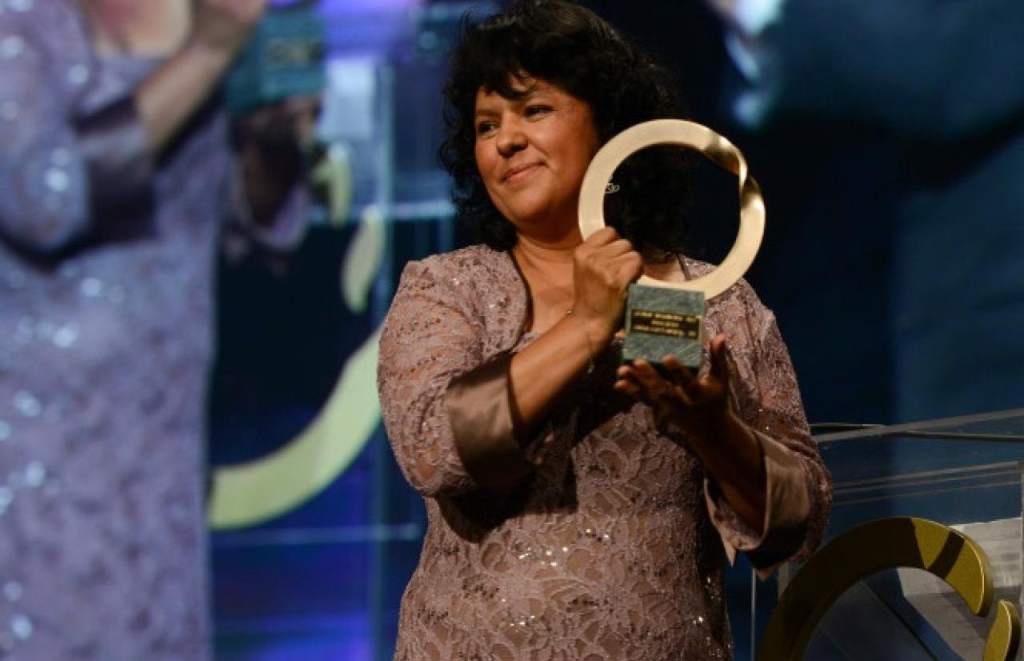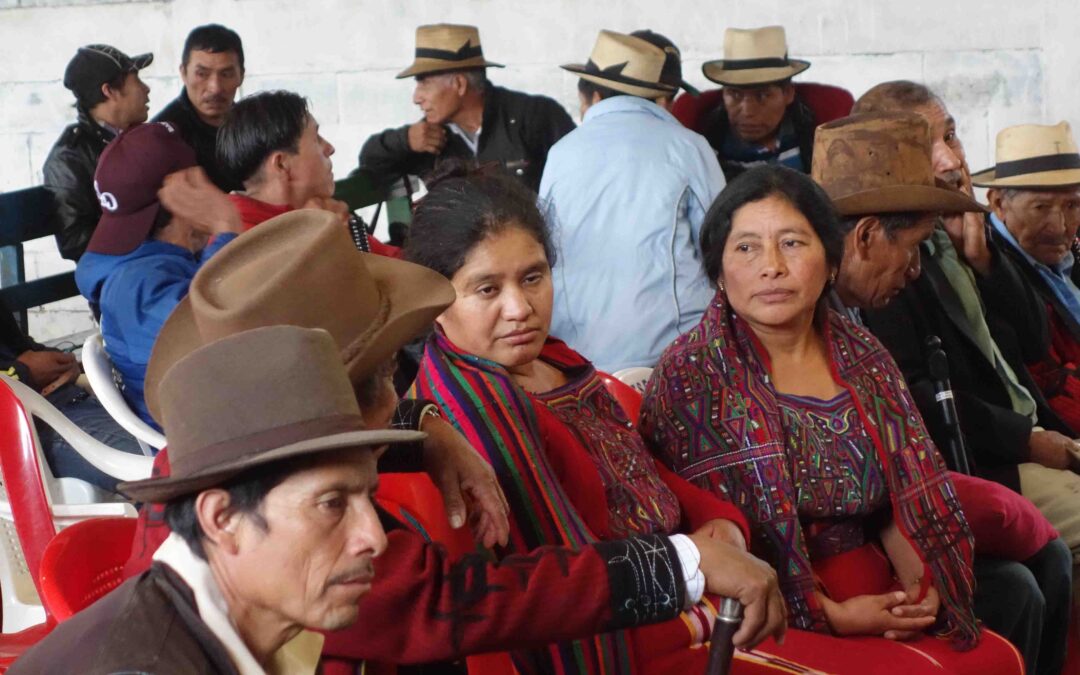
Mar 11, 2016 | Advocacy, Non-legal submissions
The ICJ today made an oral statement at the UN Human Rights Council, on negotiations for a treaty on business and human rights.
The statement welcomed the report of the Chairperson Rapporteur of the first session of the Intergovernmental Working Group on a Legally Binding Instrument on Transnational Corporations and other Business enterprises and Human Rights, and thanked Ambassador Espinosa for her effective leadership of the process.
The ICJ reiterated its support to the process of elaboration of an international legally binding instrument. A treaty, together with other existing instruments and coupled with effective and robust national action, has the potential of significantly contributing to advance the protection of human rights in the context of global business operations. The ICJ called on States to ensure that the process results in an instrument that addresses the most pressing challenges in legal accountability of both national and transnational businesses and access to justice and also provides for the crucial international supervisory and monitoring mechanisms to enhance its effectiveness.
Hundreds of civil society organizations, mostly from the grassroots level, participated in the first session of the IGWG and are active in the whole process. The ICJ urges the United Nations and member States to facilitate civil society participation, including from the global south. Despite the significant participation of many States and business associations, the ICJ believes that more should be done to encourage broad and active stakeholder participation. The ICJ calls on states that are home to large transnational corporations to take part in the deliberations of the working group.
The ICJ believes a legally binding instrument will be the necessary complement to the Guiding Principles on Business and Human Rights, and other instruments. The drafting process should build on some of the accepted key principles and processes, including on the results of the OHCHR project on Corporate Accountability and Access to remedy, cover the conduct of all business enterprises and also contain provisions which address the particular regulatory and jurisdictional challenges pertaining to transnational companies.

Mar 8, 2016 | Advocacy, Non-legal submissions
The ICJ spoke today at the UN Human Rights Council, addressing the human rights impacts of tax evasion and avoidance, and on women’s access to food and the right to food.
The statement was made in an interactive dialogue with the Independent Expert on the effects of foreign debt, and the Special Rapporteur on the right to food.
The statement addressed the following points, among others:
Welcoming the report of the Independent Expert, the ICJ highlighted that tax evasion and tax avoidance are forms of business’ misbehaviour that are facilitated by inadequate legislation and lack of international frameworks and cooperation in tax matters, and as such need to be tackled by the international community. This is all the more important now that the private sector has been assigned a greater role in the achievement of the 2030 development goals. In this regard, the recommendations by these Special Procedures should receive careful consideration.
The ICJ also welcomed the report on Women’s access to food by the Special Rapporteur on the Right to Food. The report highlights the legal barriers in domestic law that prevent women from fully realizing their right to food, including property rights, land rights and intellectual property rights. The report also highlights the negative impact of certain economic and market models as well as agribusiness corporations in enhancing women’s difficulties in accessing food and achieving food security.
The full statement may be downloaded in PDF format here: HRC31-OralStatement-IEforeigndebt-2016

Mar 3, 2016 | News
One of the leading indigenous activists and human rights defenders in Honduras, Berta Cáceres had worked jointly with the ICJ on several projects. She was shot dead by unknown attackers at her home today.
The ICJ urges the Honduran authorities to launch a rapid and independent investigation to identify who perpetrated and/or ordered the murder of Berta Cáceres and bring the person(s) responsible into court.
“We have lost a courageous and committed human rights defender,” said Ramón Cadena, ICJ’s Regional Director for Central America.
“It is essential that this crime does not remain unpunished. The government must send a strong signal and take immediately measures to effectively investigate this killing and hold those responsible to account,” he added.
A relentless defender of indigenous peoples rights to land and natural resources, Berta Cáceres had been awarded the Goldmann Environmental Prize in 2015 (photo).
It is a huge loss not only for her family, but also for the whole human rights movement in Honduras, the ICJ said.
Berta Cáceres had received repeated death threats from both state security forces and the company planning the Agua Zarca dam, which she had successfully fought against, together with residents of the Lenca Community.
She had been placed under the protection of the local police in La Esperanza, the area where she lived. Obviously this was not enough.
The situation of human rights defenders in Honduras is dire and has continuously deteriorated in the recent years, with their activities being systematically criminalized.

Mar 1, 2016 | News
En mayo de 2015, la empresa REPSA entregó un oficio en el Ministerio de Ambiente y Recursos Naturales donde acepta su responsabilidad por el desborde de sus lagunas de oxidación artificial que se derramaron sobre las aguas del río La Pasión el 28 de abril de 2015.
Sobre un segundo evento del 6 de junio de 2015 no hubo un reconocimiento de su responsabilidad.
El daño causado al Río la Pasión persiste al día de hoy y ha obligado a varias comunidades que allí habitan a buscar fuentes alternativas de sustento y trabajo.
El 10 de junio de 2015, vecinos del municipio de Sayaxché, en asamblea general integraron la Comisión por la Defensa de la Vida y la Naturaleza, para dar seguimiento por la vía legal a la contaminación del río.
El 11 de junio de 2015 presentaron una denuncia en el Ministerio Público con sede en el Municipio de San Benito, departamento de El Petén y demandaron a la empresa REPSA.
La Jueza Karla Hernández del Juzgado Pluripersonal de Primera Instancia Penal, Narcoactividad y Delitos contra el Ambiente resolvió investigar y suspender las operaciones de la empresa por un período de seis meses.
La decisión de la Jueza provocó diferentes acciones en su contra.
Entre las acciones más evidentes se cuentan: a) Antejuicio presentado en septiembre de 2016 por abogados vinculados a la empresa REPSA, el cual fue declarado sin lugar por la Corte Suprema de Justicia el 9 de diciembre de 2015; b) Demanda de juicio sumario civil para deducción de responsabilidades civiles por “extralimitación de sus facultades como juez B del Juzgado Pluripersonal de Primera Instancia Penal, Narcoactividad y Delitos contra el Ambiente del Municipio de San Benito, Departamento de El Petén, toda vez que ordenó una medida precautoria que no está contemplada en la ley”; esta denuncia fue aceptada para su trámite por la Sala Regional Mixta de la Corte de Apelaciones del Departamento de El Petén, Municipio de Poptún el 6 de octubre de 2015 y se encuentra en trámite.
Acerca de estas acciones, la CIJ considera:
- Según los Principios básicos de las Naciones Unidas relativos a la independencia de la judicatura no se efectuarán intromisiones indebidas o injustificadas en el proceso judicial, ni se someterán a revisión las decisiones judiciales de los tribunales, salvo la vía de la revisión judicial por medio de los recursos legales existentes;
- En el presente caso, la decisión de la jueza Hernández fue recurrida conforme los recursos propios del proceso penal (reposición y apelación); sin embargo, mediante otras acciones, se tomaron medidas en contra de la jueza Hernández y no contra la resolución emitida por ella, como debiera ser.
- Estas acciones atentan contra la independencia judicial, en tanto buscan evitar que la Jueza Hernández conozca el caso;
- La Jueza Hernández ha recibido amenazas sin que el Estado de Guatemala le brinde la protección debida;
Ramón Cadena, Director de la Comisión Internacional de Juristas para Centroamérica expresó: “Urgimos a las autoridades del Sistema de Justicia a tomar medidas adecuadas para evitar que las y los jueces independientes, resulten afectados por este tipo de acciones e intimidaciones.”

Feb 13, 2016 | Multimedia items, News, Video clips
The land of several communities from the Municipality of Nebaj was sold to the State during the civil war. But this happened without any valid legal basis.
The expropriation occurred in 1984 in the area of Tzalbal, at a time when most of the people from 14 local communities had flown to Mexico or the neighboring forests because of the war, which was particularly intense in the area.
The loss of farmland affected some 15000 people.
In 2013, the communities asked the ICJ to help them recover their land.
An initial investigation by the ICJ confirmed that the mayor at that time (1984) had signed a document transferring the land into the State’s hand.
However, this happened without consulting the communities and none of their representatives signed the document.
The ICJ asked the State to return the land to the communities through a Governmental Agreement, which was initially accepted.
However, the Government eventually reneged on its promise and ended the negotiations.
The ICJ is now preparing an action for protection of constitutional rights to help the communities recover their land through a judicial decision.
Guatemala-Caso Nebaj-News-Web Story-2016-SPA (full story in PDF, Spanish)
The Nebaj case in video (Spanish, English subtitles)









